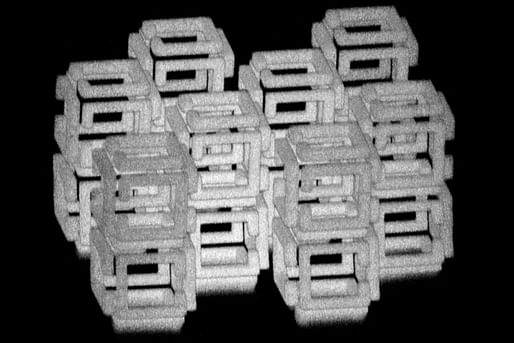

Researchers at MIT have developed a way to shrink objects to nanoscale. Using a technology called implosion fabrication, the method allows objects to be 3D printed at a scale smaller than what one can see with a microscope. "It’s a way of putting nearly any kind of material into a 3-D pattern with nanoscale precision,” explains neurotechnology professor and lead researcher Edward Boyden.
The technology has far-reaching implications and has potential applications in many fields, from optics to medicine to robotics. For example, researchers are hoping to use this technique to make smaller and better specialized lenses for cameras, cell phones, microscopes and so on.
The way it works is "a bit like film photography," describes Daniel Oran, a graduate student and one of the paper's lead authors. First, a latent image is formed by exposing a sensitive material in a gel to light, says Oran. Then, by attaching materials such as metal or DNA to the structure, researchers are able to shrink the entire structure down by adding acid.
The method developed by the researchers at MIT reverses a common technique for enlarging images of brain tissues called expansion microscopy. “People have been trying to invent better equipment to make smaller nanomaterials for years, but we realized that if you just use existing systems and embed your materials in this gel, you can shrink them down to the nanoscale, without distorting the patterns,” Samuel Rodriques says.
An added boon of the technology is that the necessary equipment is already quite cheap and accessible. All that is needed are a laser and an absorbent gel, both materials that most biology and engineering labs already have.
“There are all kinds of things you can do with this,” Boyden says. “Democratizing nanofabrication could open up frontiers we can’t yet imagine," he adds.
No Comments
Block this user
Are you sure you want to block this user and hide all related comments throughout the site?
Archinect
This is your first comment on Archinect. Your comment will be visible once approved.